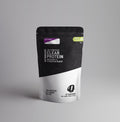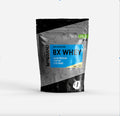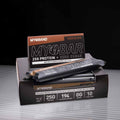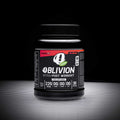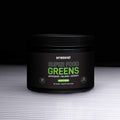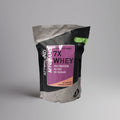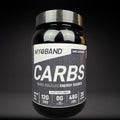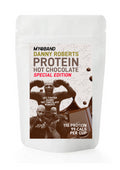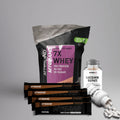Is late-night snacking bad for fat loss?
Posted by PROPROTEIN LTD ADMIN

Author: Gareth Sapstead - Fitness Director
A calorie at 7.59pm is the same as a calorie at 8.01pm, and contrary to what some believe there’s no magical time where every calorie suddenly gets stored as fat. Saying that a calorie at 8.01pm will make you gain fat, is kind of like saying eating fat will make you gain fat, something we all hopefully know to be incorrect.
Eating of fats, carbohydrates, and even protein (albeit to a lesser degree) will cause you gain weight if you OVEREAT them. Your macronutrients (carbs, fat, protein, alcohol) make up your total calorie intake, which is your energy. If you take in more energy than what your body needs then it will store it for later use. This might be of benefit if you’re a hunter gatherer and don’t know where your next meal’s coming from, but in the world we live in today food is always just around the corner.
Now, eating at say 8.01pm is the same. It will make you gain weight if you’re eating more than your body needs. It will also cleverly store the excess energy for later use, in the meantime giving your six-pack the look of a beer keg. But whether you’re eating at 7.59pm, 8.01pm, or in the middle of the night it really doesn’t matter. Consider each of the 24 hours in a day to be important as one another.
In some parts of the Mediterranean it’s not uncommon for people to be eating their main meal at 10pm at night. Of note they also eat a lot of starchy carbohydrates, and a variety of fat sources. These are some of the longest living and healthiest people on earth.
The Hadza of Tanzania [1] are the world’s last full-time hunter gatherers. Unchanged for over 10,000 years they live off what they find; wild game, honey and plants, and they don’t care what time they eat it.
You might also want to consider closer to home that our grandparents and great grandparents weren’t worrying about what time they were eating their main meal either, and did they have a weight problem? Most likely not.
In a 2016 study [2] that looked at 1620 four to eighteen year-olds in the UK, it was found there was no evidence eating after 8pm was associated with excess weight gain. There was also no evidence that later eaters consumed more calories either. Calorie and nutrient intake were shown to be similar, therefore the results were similar.
A 2016 review [3] of research concluded that regular eating habits are the key to regulating body weight, while unplanned snacking, particularly in the evenings seem to be associated with higher body weight. While it’s very easy to look at this and think that it shows late night eating to be bad, what it really demonstrates is what you already know. By you eating EXTRA unplanned calories in the evening, you’re more likely to gain weight. Your irregular eating habits are also more likely to result in you eating extra calories, particularly in the evening, and therefore more likely to be stored as body fat.
In a study [4], Baron et al. found that total protein, fat and carbohydrate eaten after 8pm was associated with a higher body fat. That’s to say, rather than carbohydrate alone, excessive consumption of all nutrients was associated with fat gain. Evening and late-night snacking was associated with weight gain not because of the type of food, but because of the total amount of food and calories consumed after 8pm.
Because we’ve heard so many times that late-night eating is a problem, most of us believe it to be true. But it’s the habit of eating energy your body doesn’t need, often because of evening boredom that’s the real problem. The excess calories are the problem, no matter what time of day they’re eaten.
A calorie is just a calorie at the end of the day, no matter what time it’s eaten. 7.59pm or 8.01pm that’s your choice.
Useful tips
- A calorie is a measurement of energy, and it’s too much energy that gets stored as body fat. Some calories are better than others, but you need to manage your energy intake no matter what time of day it is.
- If you know you’re likely to raid the cupboards in the late evening, then think about saving some calories earlier in the day. Make sure it fits in to your daily energy needs.
- If evening snacking is a problem for you, try something simple such as limiting yourself to 200 calories. Setting yourself a limit will give you permission to use them without the guilt, while minimising the chances of over spilling on calories.
- Foods that keep the fingers busy and easy to portion are good options. Fore example pistachio nuts in kernels, beef jerky, low sugar popcorn, or even frozen grapes or berries.
- Fail to prepare and be prepared to fail. If all you have are unhealthy snack options and “trigger” foods then you’re more likely to overeat and fail.
Shop MYOBARs! Under 200 calories, zero added sugar, and the high-protein snack you can enjoy anytime of day.
TAGS:
